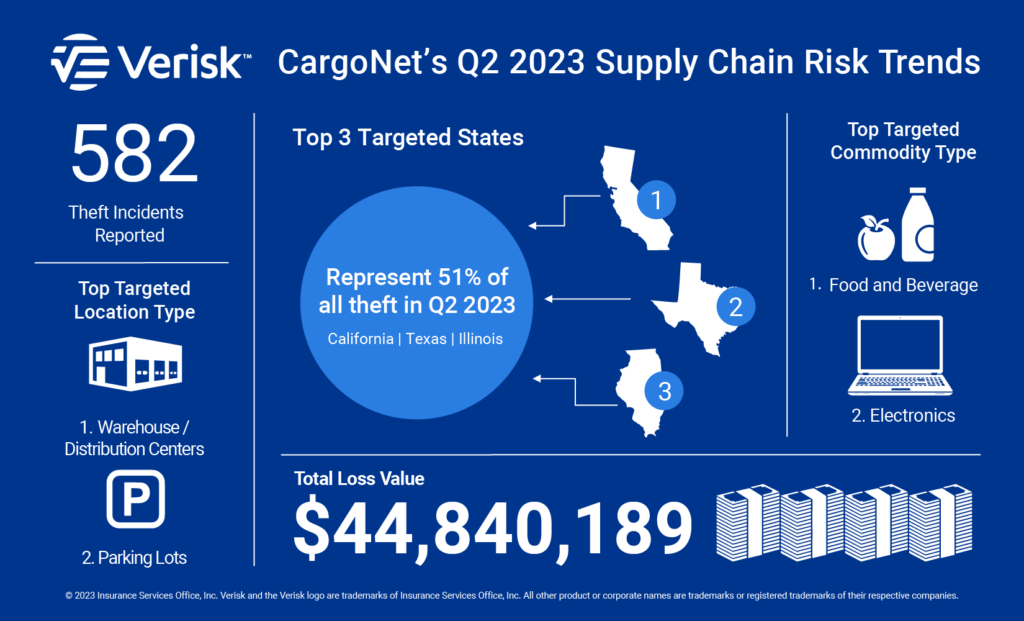Cargo thefts surge in Q2: CargoNet
Cargo theft in Canada and U.S. increased 57% in the second quarter, compared to the same time last year, as strategic and organized theft continues to spread across the industry, CargoNet reports.
While 582 recorded theft events cost the industry over $44 million, the average value of a stolen load is estimated at almost $261,000 — nearly a $100,000 increase, says Cargo Net’s 2023 Second Quarter Supply Chain Risk Analysis.
This is explained by thieves focusing on high-value goods and more misdirected shipments, where thieves use the stolen identity of carriers and logistics brokers to redirect freight from intended receivers.

Theft of a loaded conveyance, such as a full trailer, also increased by 17% year-over-year. This kind of theft is most common in California, Texas, Florida and Illinois. But regional activity in New York City and Philadelphia was also significant in the second quarter.
Burglary of the loaded conveyance has decreased because of recent law enforcement. However, high-value goods traveling the I-40 corridor through Arizona, California, and New Mexico are still at significant risk.
And while California, Illinois and Texas account for 51% of all stolen cargo, CargoNet reports that California and Illinois have also seen growing extortion and conversion schemes from organized crime groups.
“These groups focus on obtaining shipments from logistics brokers, tacking on extra and often exorbitant fees for various manufactured reasons like overweight tickets or previous rate penalties charged to non-affiliated motor carriers. Criminal enforcement for such cases is complex and rare, which has emboldened organized groups,” the report reads.
Fictitious pickups
There have also been 127 more cases of fictitious pickups recorded year-over-year, with thieves pretending to be authorized drivers. While Los Angeles Metro Area is the biggest hotspot of the crime, it has occurred all over the U.S.
While 39 different product categories were targeted, thieves focused on alcoholic and non-alcoholic beverages, especially energy drinks and soda, as well as solar power energy generation equipment and automobile supplies, from oils and tires to parts and fluids.
Fictitious pickup became big issues for Maricopa County, Ariz., Travis and Chambers counties, Texas, and DeKalb County, Ga., due to their local industries.
To prevent fictitious pickup, shippers and logistics brokers should verify bids on shipments with motor carriers through the Federal Motor Carrier Safety Administration contact information on file, and double-check shipper and driver names.
“Motor carriers should be wary of new customers that want them to haul a blind shipment delivering to an address different from the bill of lading, especially if the address is a public warehouse or cross-dock in California,” CargoNet warns.
Have your say
This is a moderated forum. Comments will no longer be published unless they are accompanied by a first and last name and a verifiable email address. (Today's Trucking will not publish or share the email address.) Profane language and content deemed to be libelous, racist, or threatening in nature will not be published under any circumstances.